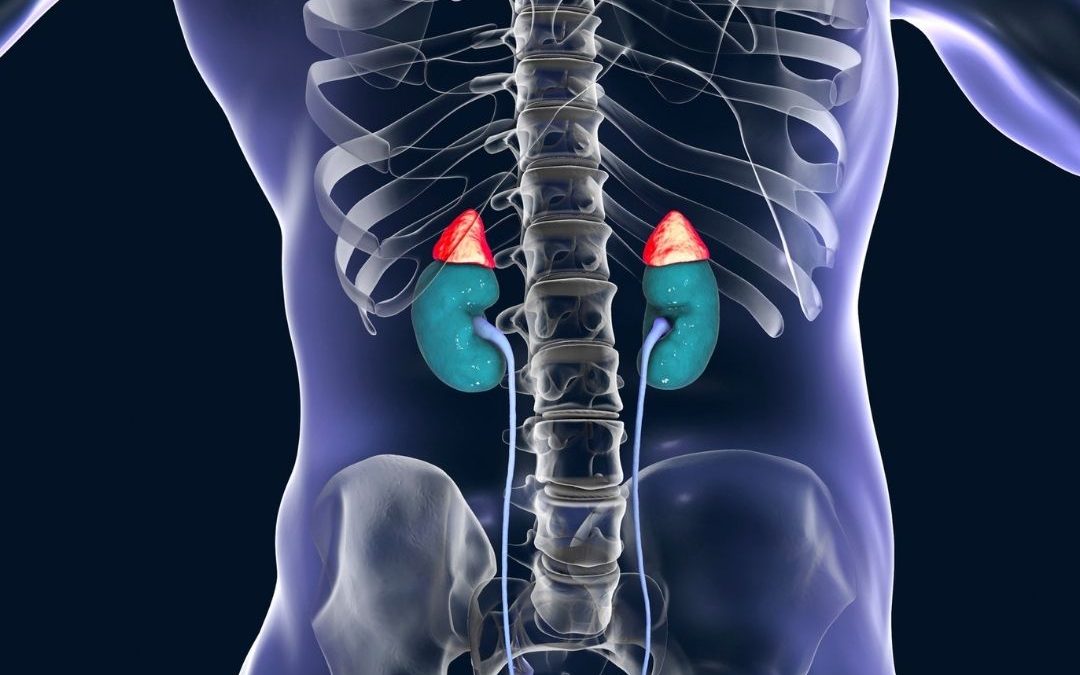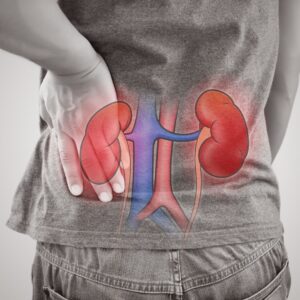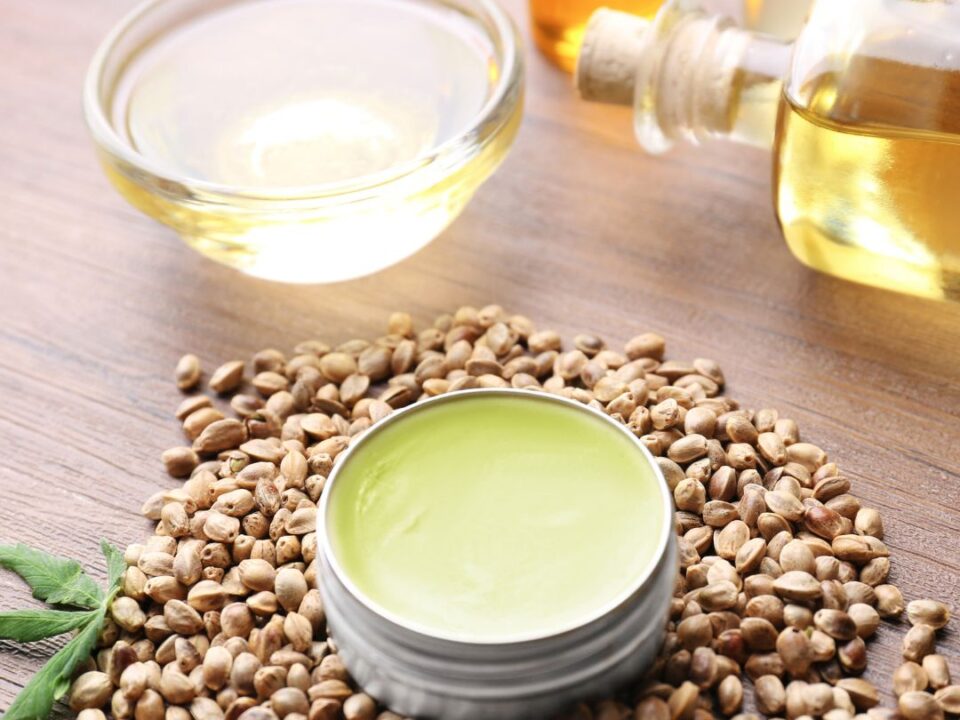
What are CBD oil side effects on kidneys? This is a hot question in the CBD world. The most common side effect of taking CBD oil is dry mouth and a few other minor side effects. No negative side effects on the kidneys have been reported. Read on to learn more about CBD oil and your kidneys.
What is kidney disease?
The kidneys are bean-shaped organs that are situated on either side of the lower abdomen. Their primary role is to clean the blood and extract all the excess fluids from the body. The fluids are then removed from the body as urine. The kidneys play a crucial role in the filtration of the blood in the body. Therefore, the kidneys are crucial to the body, and once they get impaired in their functions, there can be serious complications.
Usually, you can live a long and healthy life with only one kidney. Kidney donors and recipients survive for many years. However, if both of your kidneys fail, then you will be in a traumatizing condition. This is because the condition is fatal; you would need to have a kidney transplant to survive.
What is CBD oil?
Cannabidiol, popularly known as CBD, is the second major cannabinoid of the cannabis plant. CBD oil is extracted from the cannabis plant using a CO2 extraction method. It is then prepared by diluting the extracts from the cannabis plant with a solvent oil such as hemp seed oil, olive oil, or MCT oil, (fractioned coconut oil). CBD oil has been used for many years for several medicinal purposes.
CBD oil containing CBD from hemp appears to be a more safe option due to the absence of THC. THC is the psychoactive cannabis compound that gives the intoxicated high feeling.
 Does CBD oil cause negative side effects on the kidneys?
Does CBD oil cause negative side effects on the kidneys?
Kidney diseases are a fairly common ailment. Affecting up to 800 million people across the world, with a daily increase in the number of patients suffering from the complications of kidney disease. The effects of CBD on kidney health have been a recent topic of interest. The side effects of cannabidiol (CBD) that have been reported show no negative effects on the kidneys. However, there have been other side effects reported not in conjunction with the kidneys. These side effects include dry mouth, nausea, and appetite change.
Does CBD oil cause positive side effects on the kidneys?
Some of the potential positive effects of CBD on the kidneys are as follows:
- CBD oil has the potential to help to reduce inflammation in the kidneys
- Cannabidiol may help alleviate pain associated with the side effects of the kidney ailments
- CBD could help to slow the progression of kidney disease
- It may aid in the prevention of oxidative damage in the kidneys
CBD oil also provides relief from many other ailments such as digestive ailments, stress, and anxious thoughts, discomforts of the joints and muscles, and aids with sleep.
Can you take CBD oil if you have had a kidney transplant?
CBD oil can have negative side effects on those who have had a kidney transplant. It can interact with medicines that prevent rejection. CBD oil can work to boost the immune system, whereas rejection meds are sometimes used to suppress the immune system.
It is always best to talk with your doctor before taking any CBD product and always go by the doctor’s recommendation as to if CBD oil will have side effects on your kidneys.
How is CBD absorbed in the body?
CBD is absorbed into the body’s bloodstream and then distributed throughout the body’s endocannabinoid system. The endocannabinoid system consists of specific pathways known as CB1 and CB2 receptors. Many cannabinoids only react with one receptor, however, CBD reacts with both CB1 and CB2 receptors.
 What does the endocannabinoid system do?
What does the endocannabinoid system do?
The endocannabinoid receptors are found on almost all the organs of the body, including the kidneys. There are two types of receptors, labeled as CB1 and CB2.
Some organs have one type of endocannabinoid receptors, while others have the other type, whereas the kidneys have both CB1 and CB2 receptors. Any imbalances in receptor activity can lead to unwanted effects.
- CB1 receptors target motor activity, coordination, cognitive function, short-term memory, appetite, pain, as well as immune cells. CB1 receptors are found all over the body but primarily reside in the brain. There are other protein receptors, but CB1 is the most abundant in the brain.
- CB2 receptors are found on the kidneys, pancreas, liver, muscles, bones, joints, eyes, respiratory tract, skin, as well as reproductive, immune, and cardiovascular systems.
The effects of CBD on kidneys can be either harmful or beneficial, depending upon the source of CBD, the type of kidney disease, the dosage of other drugs, and the overall prognosis of the patient. Some researchers have outlined the fact there are harmful effects of cannabis in patients with chronic kidney disease, while researchers showed no such correlation between CBD oil and the kidneys, and yet others proved a beneficial role of CBD oil in kidney patients.
What types of CBD is best?
There are many different types of CBD products that provide different delivery methods as well as faster absorption rates.
CBD Oil Tincture- The most common way to take a CBD oil is sublingual administration. Hold the oil under the tongue for 30 seconds to 1 minute. This area is full of capillaries, tiny blood vessels that connect to your arteries and veins. Holding the formula there allows some CBD to bypass the digestive system, allowing faster absorption into the bloodstream. Once the formula sits under the tongue for some time, swallowing the rest will allow the digestive system to utilize the rest of the CBD.
CBD Softgels- CBD soft gels are easy-to-swallow, round-shaped, tasteless capsules that contain premium CBD. CBD soft gels can help you to get this CBD into your body with ease through oral administration. It is one of the most popular ways to consume CBD. You can take CBD soft gels just like you would take any other food supplement.
CBD Gummies- CBD Gummies are edible candies that contain CBD oil. They come in a rainbow of flavors, colors, shapes, and concentrations of CBD. These are eaten like a piece of candy. The CBD is absorbed through the digestive system.
Inhalable CBD Products- Inhalable CBD products have quickly become an essential tool for CBD users. Not only does it offer a nearly instant effect, but it also provides one of the most effective ways of consuming CBD. Inhalable CBD products present a greater bioavailability. When you inhale CBD, as opposed to other methods of consumption, more of the CBD compound is available to the body’s cells. Inhaled CBD completely bypasses the digestive system.
The recommended dosage of CBD oil for less Side Effects on Kidneys
While any CBD product you purchase will come with its own dosage guidelines, experiences can vary. The ideal CBD dose for you usually depends primarily on your body weight. However, it can also be influenced by several other factors, such as your personal body chemistry, your age, and any other health conditions you have.
Unfortunately, because CBD is not yet regulated by the FDA, there are no official dosing guidelines for CBD. However, there are best practices and general rules of thumb you can follow.
When trying to determine your ideal CBD dosage, the optimal goal is to find the lowest dose of CBD that provides the benefits you need with few or no side effects. Studies show that people do not develop a tolerance to CBD the way they do with other cannabis products like the THC found in marijuana.
The standard recommendation is to base your CBD dose on your body weight. Take 1 to 6 mg per 10 pounds of body weight.
This is just a general guideline to find your CBD dose. Some people need significantly more CBD to get results, while others need significantly less. If you have a chronic ailment, you will likely require a higher dose on a daily basis than someone who takes CBD occasionally to cope with situational anxiety.
Also, since tiredness is one of the more common effects of CBD, that can affect when you decide to take your dose. You may choose to split your dose up over the course of the day, so it doesn’t affect your alertness, or you may take it in a single dose at night when you’re okay with falling asleep.
In Conclusion
To conclude, CBD oil has been shown to play a beneficial role in managing kidney disease and the complications of kidney disease, for example, high blood pressure. But there is insufficient data available to prove its efficacy and potential efficiency in treating kidney disease.
On the other hand, a few adverse effects of cannabis and CBD oil are also seen to affect patients with kidney disease and those with other comorbid diseases like diabetes.
It is not safe to take CBD oil products if you have had a kidney transplant.
It is indispensable to seek professional help and advice on whether CBD oil is harmful or beneficial for you as every individual has a different medical history and body reactions.
“These statements have not been evaluated by the Food and Drug Administration. This blog is not intended to diagnose, treat, cure, or prevent any disease.”




